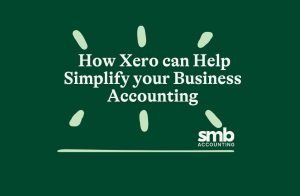
The Importance of Good Bookkeeping for Small Business Success
Bookkeeping is the backbone of any successful small business. It involves keeping detailed records of all financial transactions, providing a snapshot of your business’s health. Without accurate bookkeeping, making informed decisions can become a gamble rather than a strategy. Understanding the Role of Bookkeeping in Business Success Bookkeeping is vital

Preparing Your Small Business for Tax Season: A Simple Guide
Tax season can be a stressful time for small business owners, but with the right preparation, it doesn’t have to be. By taking some simple steps throughout the year, you can ensure that your finances are in order when it’s time to file your taxes. This proactive approach not only

QuickBooks for Small Businesses: A Basic Overview
Managing the finances of a small business can be challenging, especially when you’re wearing many hats. QuickBooks emerges as a vital ally in handling your financial needs with ease and precision. It’s designed to support small business owners by simplifying tasks like budgeting, invoicing, and tracking expenses, giving you more

Simple Steps to Avoid Tax Mistakes for Small Business Owners
Running a small business comes with a slew of responsibilities, and managing taxes efficiently is one of them. It can be daunting, especially when there are so many details to juggle. Even minor tax mistakes can lead to significant financial penalties, which could impact your hard-earned profit and peace of

Understanding Trust Account Audits: Key Points to Know
Trust accounts are vital in managing client funds across various industries, ensuring money is handled responsibly and transparently. Because trust accounts deal with significant financial responsibilities, regular audits are crucial. These audits help maintain trust and credibility, ensuring funds are managed according to legal standards. This article will delve into

Why MYOB Could Be the Best Fit for Your Business Needs
Choosing the right accounting software is a critical decision for any business. MYOB stands out as a versatile choice for small to medium enterprises looking to streamline their financial operations. It blends simplicity with powerful features, making it a reliable choice for businesses needing efficient financial management. Key Features of

Tips to Maximise Tax Deductions for Small Businesses
Tax season can be a tricky time for small business owners. Every dollar counts, and understanding how to maximise tax deductions can make a significant impact on your bottom line. Knowing what expenses are deductible helps you keep more of your hard-earned money while remaining compliant with tax regulations. Understanding

How Xero Can Help Simplify Your Business Accounting
Handling the financial tasks of a business can often feel overwhelming, especially when you’re balancing daily operations with long-term planning. This is where Xero comes into play, offering a solution that simplifies business accounting tasks with its user-friendly interface and powerful features. Gone are the days of manually entering data

Top Tax Deductions for Aussie Small Businesses
[av_textblock fold_type=” fold_height=” fold_more=’Read more’ fold_less=’Read less’ fold_text_style=” fold_btn_align=” textblock_styling_align=” textblock_styling=” textblock_styling_gap=” textblock_styling_mobile=” size=” av-desktop-font-size=” av-medium-font-size=” av-small-font-size=” av-mini-font-size=” font_color=” color=” fold_overlay_color=” fold_text_color=” fold_btn_color=’theme-color’ fold_btn_bg_color=” fold_btn_font_color=” size-btn-text=” av-desktop-font-size-btn-text=” av-medium-font-size-btn-text=” av-small-font-size-btn-text=” av-mini-font-size-btn-text=” fold_timer=” z_index_fold=” id=” custom_class=” template_class=” av_uid=’av-m5a3hdrr’ sc_version=’1.0′ admin_preview_bg=”] Navigating taxes can be tricky for small businesses. Knowing which deductions are

Setting Up Xero: A Step-by-Step Guide for Beginners
Getting started with Xero can seem daunting, but it’s one of the best tools for managing your small business finances. Xero offers a streamlined, intuitive way to handle tasks like invoicing, billing, and bank reconciliation. Setting it up correctly from the start can save you time and prevent future headaches.

How to Make Tax Filing Simple for Your Small Business
Filing taxes is a crucial task for any small business, but it can often feel complicated and overwhelming. Understanding how to handle tax filing efficiently can save your business time and money, and help you avoid costly mistakes. With the right approach, tax season doesn’t have to be stressful. Many

How to Set Up and Use Xero for Small Businesses
If you’re a small business owner, using the right accounting software can save you time and help you stay organised. Xero is a powerful tool for managing your business finances. It helps you with tasks like invoicing, payroll, and bank reconciliation. This can make a big difference in keeping your

Common Myths vs Facts About Business Tax Returns: What You Need to Know
In the realm of tax returns, several myths persist that can often mislead individuals, especially when it comes to maximising returns and minimising liabilities. Though these misconceptions might seem harmless, they can have tangible impacts on the accuracy and efficiency of tax filing. As tax professionals committed to empowering our

Trust Account Audits: A Simple Guide
Managing trust accounts can be a complex task for businesses in various industries. Trust accounts are used to hold funds on behalf of clients, making accurate record-keeping and regular audits crucial. Failing to comply with trust account regulations can result in severe penalties, making it essential to understand the audit

The Ultimate Checklist for Small Business Tax Preparation
As we approach another tax season, it’s crucial for small business owners like us to sharpen our pencils and ensure everything is in order. Tax preparation, especially for small businesses, involves much more than just filling out forms at the end of the fiscal year. It’s about understanding which documents

Understanding the Basics of Trust Account Audits
Trust account audits might sound complex, but they are essential for ensuring that funds held in trust are managed correctly. A trust account audit is a detailed examination of the records and processes associated with a trust account. These audits help prevent fraud and ensure that all transactions are conducted

Why QuickBooks Might Be the Best Choice for Your Business
Choosing the right accounting software is crucial for the success of your small business. Among the many options available, QuickBooks stands out as a popular choice. With its user-friendly interface and comprehensive features, QuickBooks helps small business owners manage their finances effectively. In this article, we’ll explore why QuickBooks might

Simple Tax Tips for Aussie Small Businesses
Running a small business in Australia comes with many responsibilities, and handling taxes is one of the most important. Even though taxes may seem complicated, knowing some basic tips can make the process a lot simpler. As a small business owner, understanding your tax obligations and staying organised can save

Quick Guide to QuickBooks: Tips for First-Time Users
Starting with QuickBooks can feel overwhelming, especially if you’re new to accounting software. But once you get the hang of it, QuickBooks can make managing your business finances so much easier. It’s a powerful tool designed to help you keep track of income, expenses, and everything in between. QuickBooks isn’t

The Ultimate Guide to Navigating Trust Account Audits in 2024
Trust account audits are an essential aspect of financial management for many businesses, ensuring that client funds are handled with the utmost integrity and transparency. For businesses in Australia, adhering to strict regulatory requirements is crucial to maintaining client trust and avoiding legal complications. As we move into 2024, it

Common Myths vs. Facts About Special Purpose Financial Statement Audits
Special purpose financial statement audits often come with a lot of misconceptions. These audits are tailored to meet specific needs, differing from general financial statement audits, yet they play a crucial role in verifying financial data for particular purposes. Understanding what these audits involve and debunking common myths can help

Glossary of Essential Accounting Terms for Small Business Owners
Understanding accounting terminology is crucial for small business owners who want to take control of their financial management. Knowing these terms not only helps us communicate more effectively with accountants but also aids in making informed financial decisions. Unfortunately, accounting jargon can often seem overwhelming, especially for those new to

How to Streamline Your Small Business Accounting with Xero
Finding the right tools to streamline operations and boost efficiency is a top priority for small business owners. Xero, a leading cloud-based accounting software, offers a comprehensive range of features designed to handle the accounting demands of modern small businesses effectively. With its intuitive interface and powerful functionalities, Xero not

Non-Profit Audit Guide: Overcome Challenges
Conducting audits for non-profit organisations presents unique challenges that differ substantially from those faced by for-profit entities. Understanding these challenges is crucial for ensuring compliance, transparency, and the overall integrity of the organisation’s financial practices. For non-profits, financial audits are not just about verifying numbers; they are about maintaining trust
